
Find Help
More Items From Ergsy search
-
Is there a treatment for measles?
Relevance: 100%
-
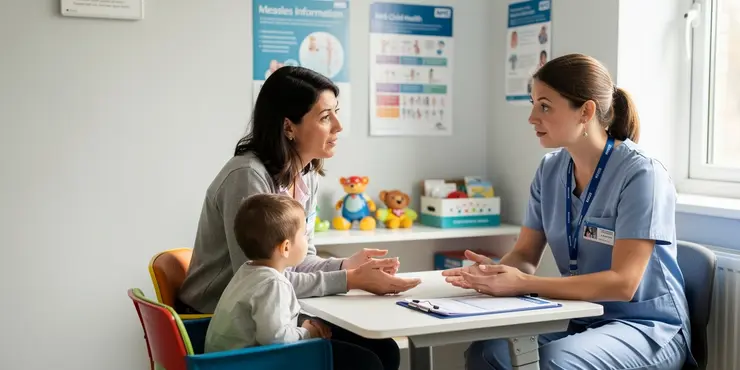
Is there a treatment for measles?
Relevance: 100%
-
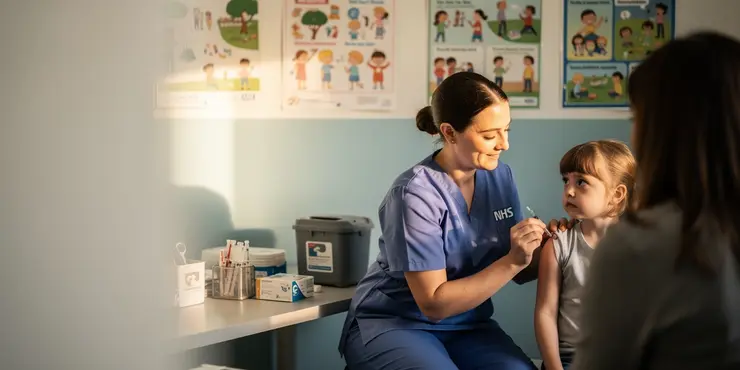
Measles
Relevance: 74%
-
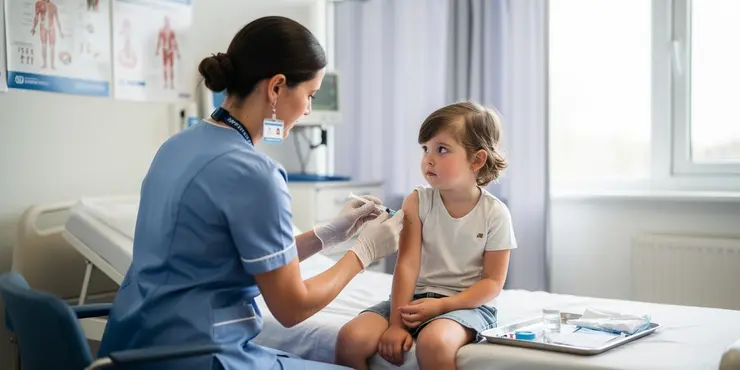
What is measles?
Relevance: 74%
-
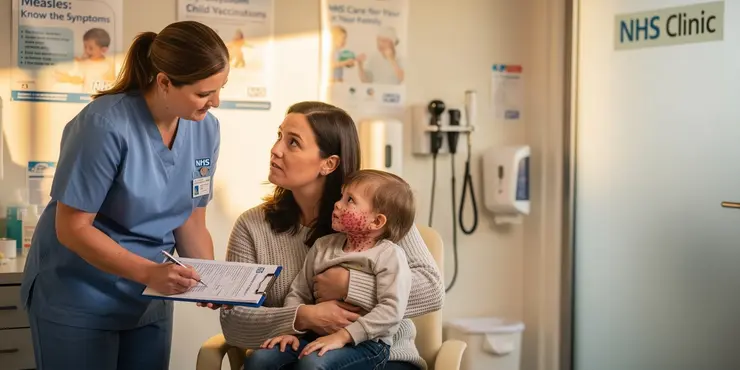
Can measles be treated?
Relevance: 72%
-
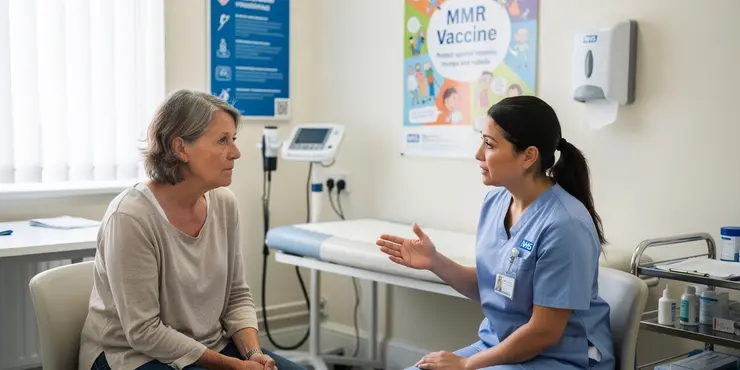
Can adults get measles?
Relevance: 68%
-
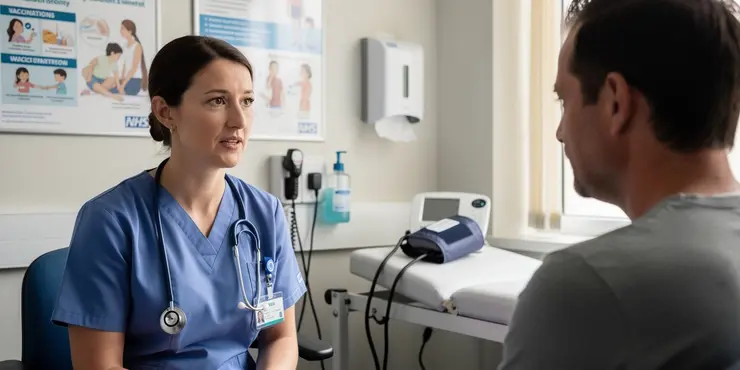
How is measles transmitted?
Relevance: 68%
-
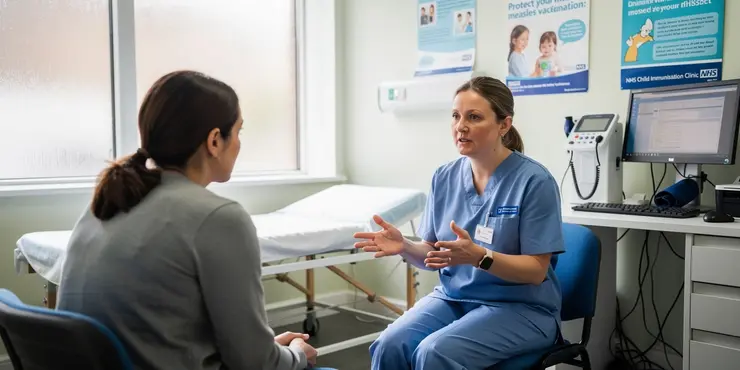
Can measles be serious?
Relevance: 68%
-
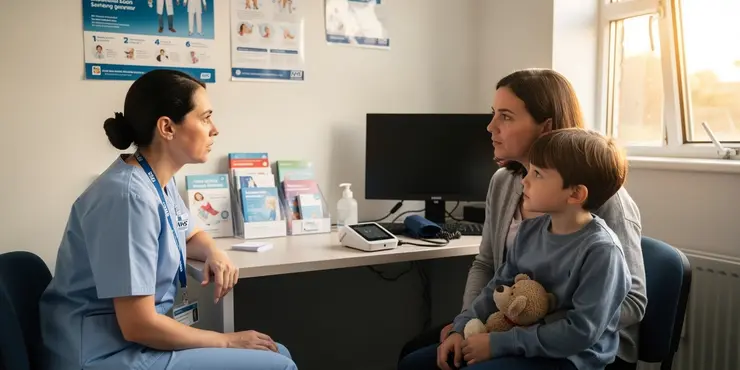
Are measles outbreaks common in the UK?
Relevance: 68%
-
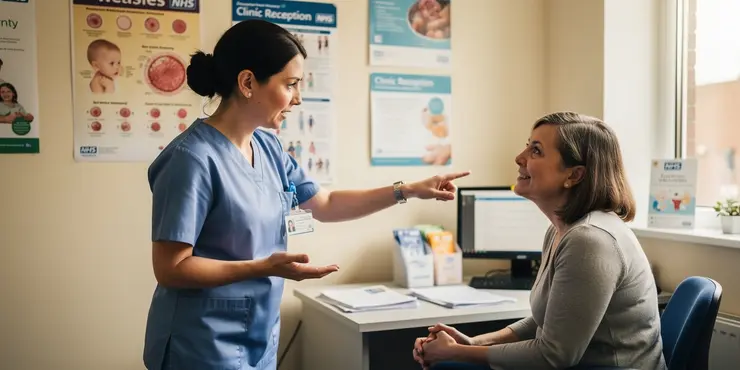
What are the symptoms of measles?
Relevance: 67%
-
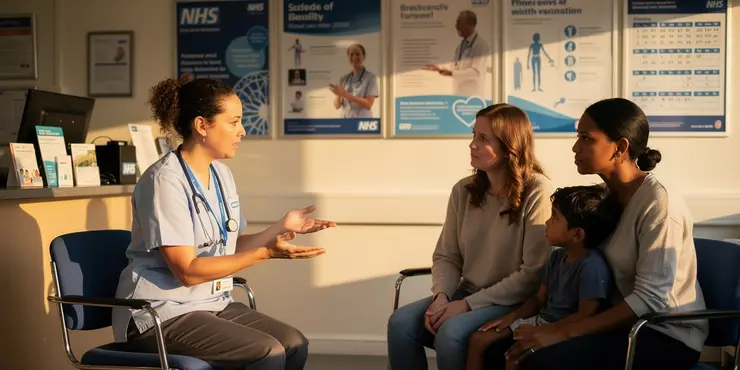
How long is a person with measles contagious?
Relevance: 65%
-
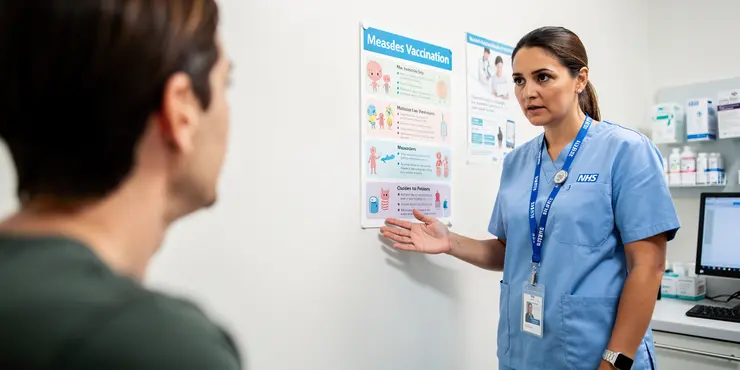
Are measles more common outside of the UK?
Relevance: 65%
-
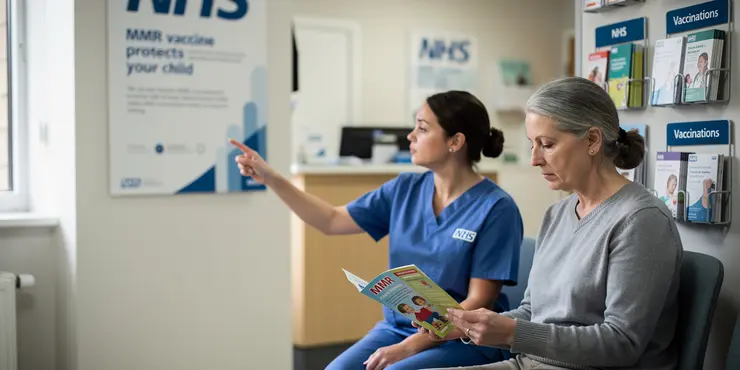
Are measles cases rising in the UK?
Relevance: 65%
-
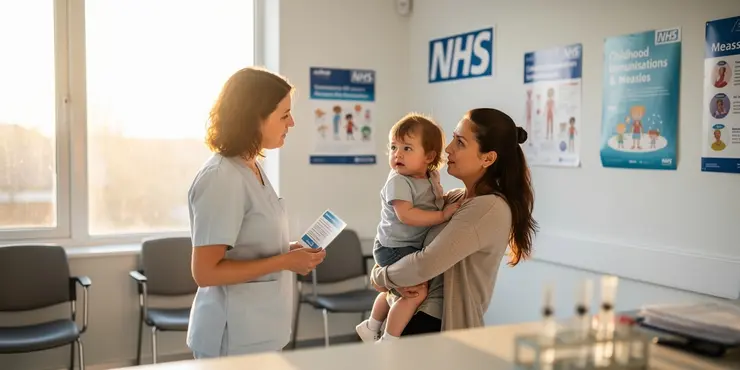
How contagious is measles?
Relevance: 65%
-
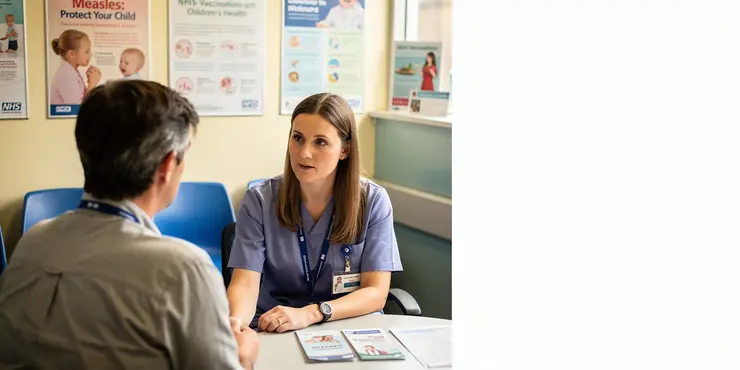
How is measles transmitted?
Relevance: 65%
-
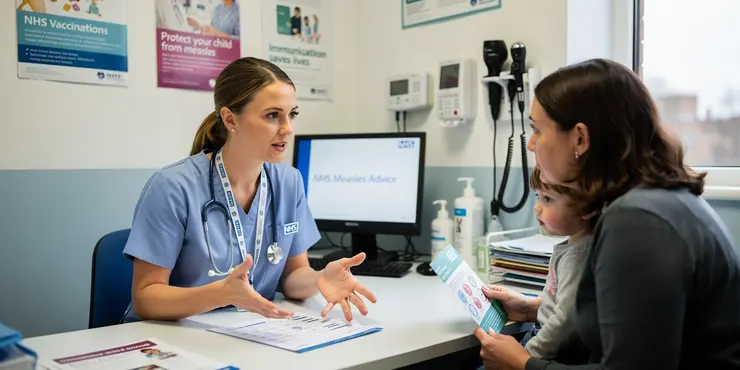
How is measles spread?
Relevance: 64%
-
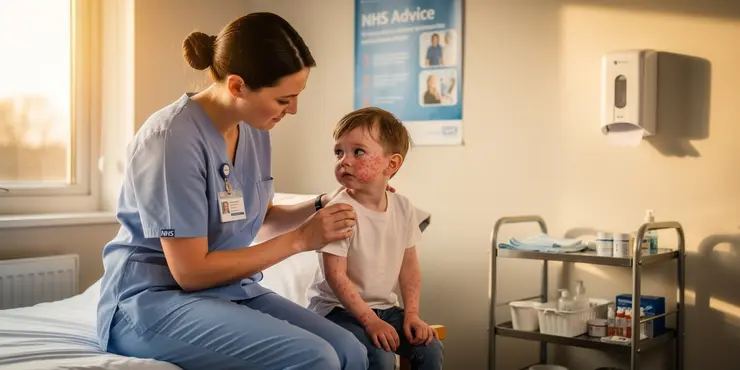
What are the symptoms of measles?
Relevance: 64%
-
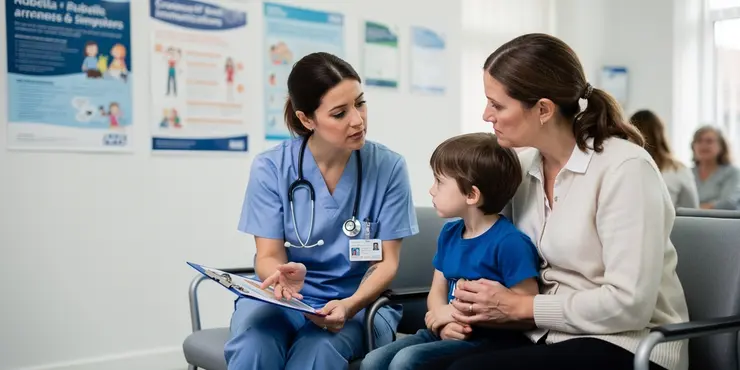
Is Rubella the same as measles?
Relevance: 64%
-
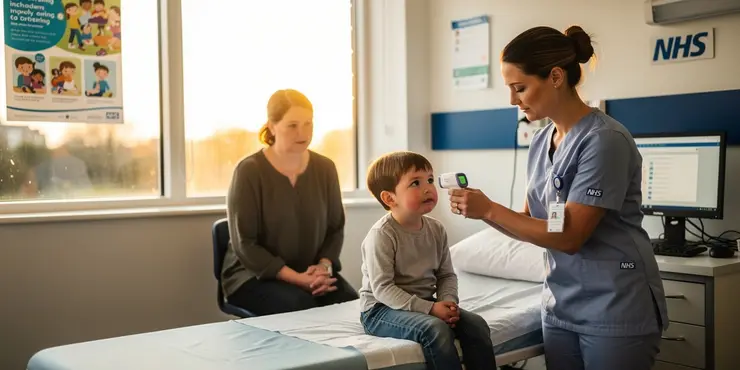
What are the symptoms of measles?
Relevance: 64%
-
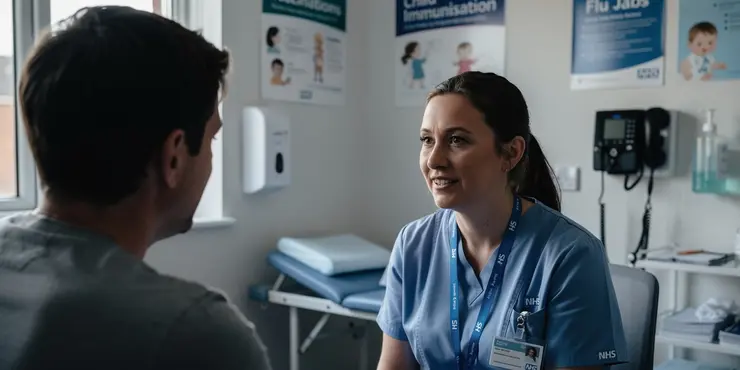
Why is measles less common in the UK?
Relevance: 64%
-

Can measles cause complications?
Relevance: 63%
-
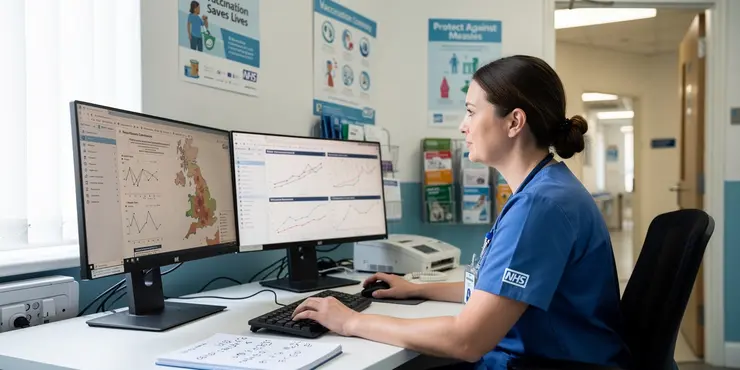
How does the UK monitor measles outbreaks?
Relevance: 62%
-
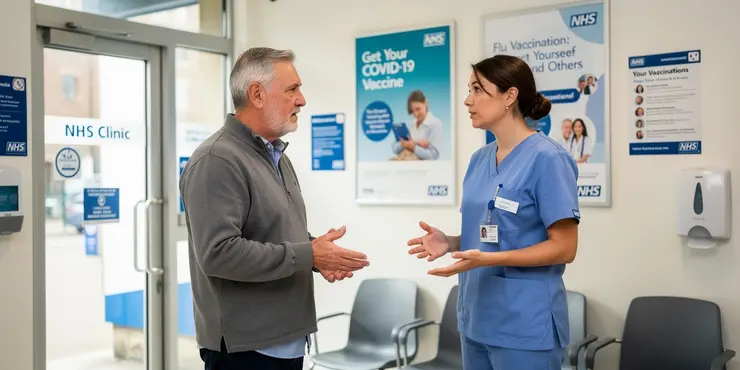
Are adults in the UK at risk from measles?
Relevance: 62%
-
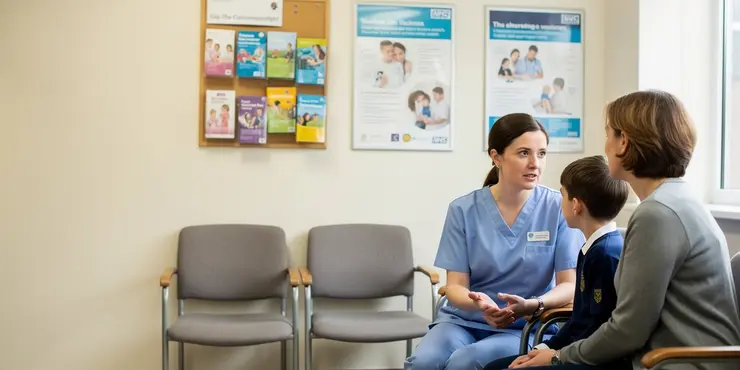
How can measles be prevented?
Relevance: 61%
-
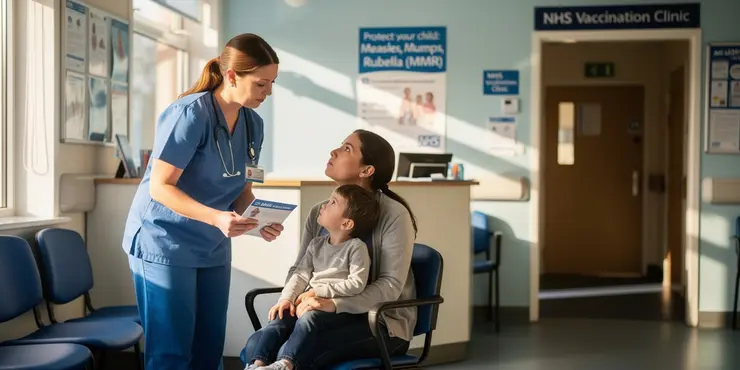
Are measles cases currently rising in the UK?
Relevance: 61%
-
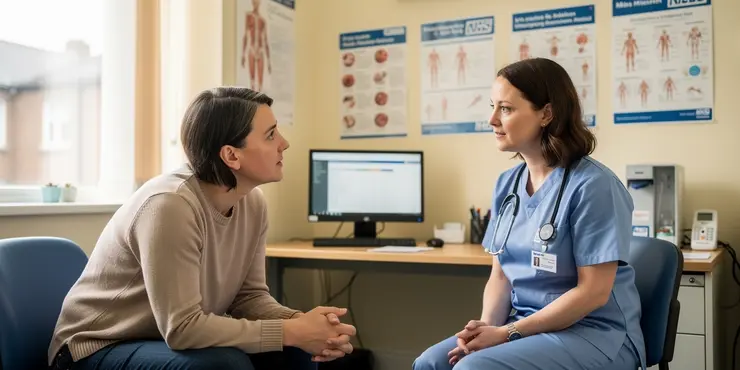
What should I do if I suspect I have measles?
Relevance: 61%
-
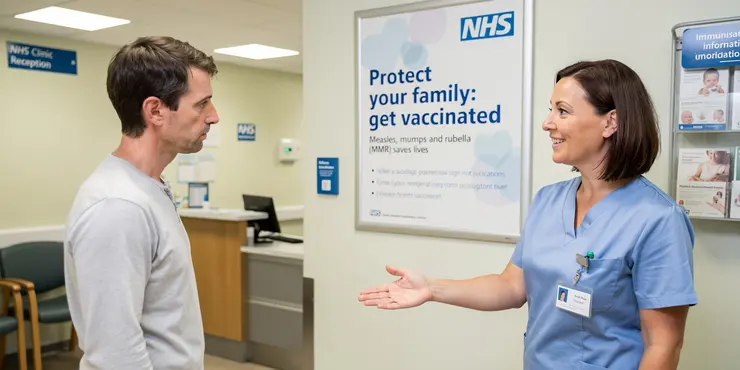
What is causing the rise in measles cases in the UK?
Relevance: 61%
-
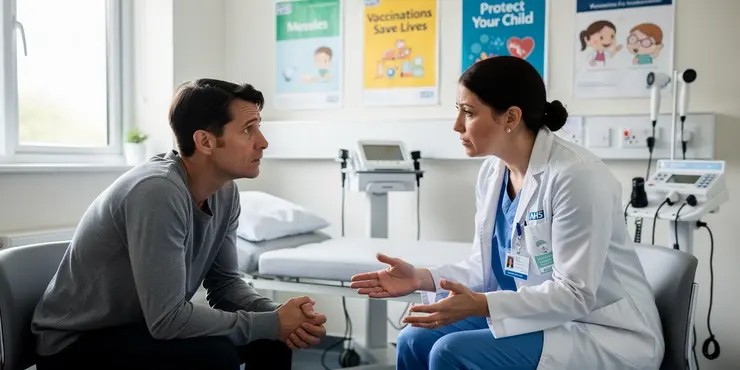
What complications can arise from measles?
Relevance: 61%
-
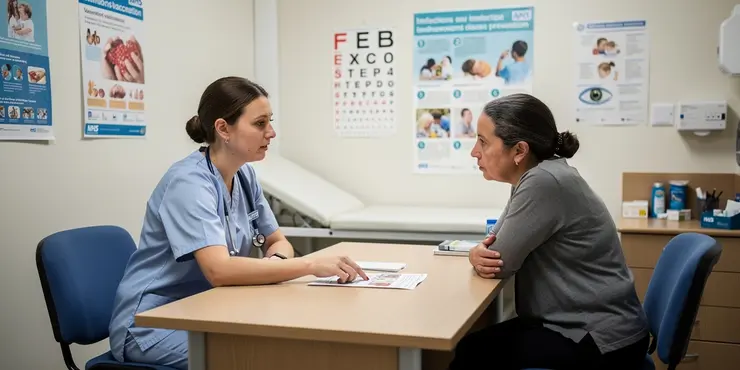
What should you do during a measles outbreak?
Relevance: 60%
-
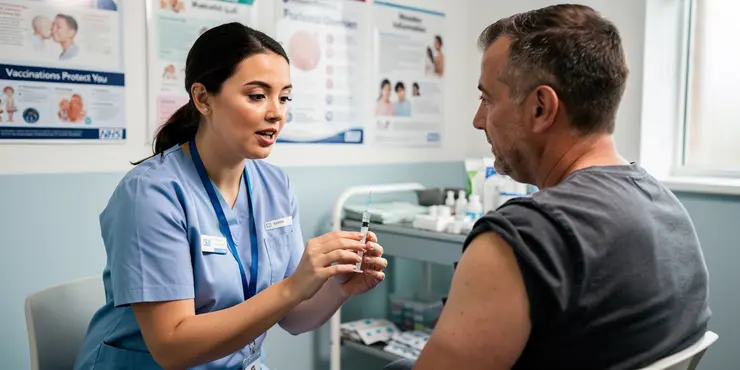
Can the measles vaccine be given to adults?
Relevance: 60%
-
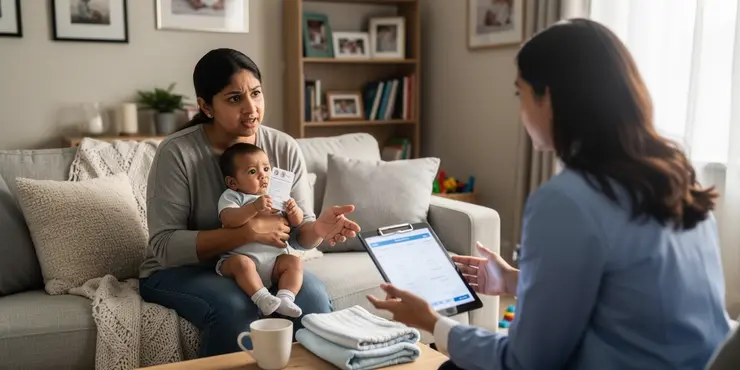
Who is most at risk from measles?
Relevance: 60%
-
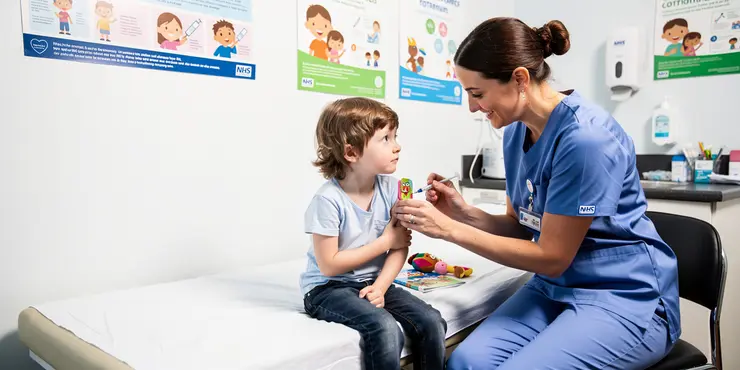
Which countries have higher rates of measles?
Relevance: 60%
-

Why are measles outbreaks still occurring?
Relevance: 60%
-
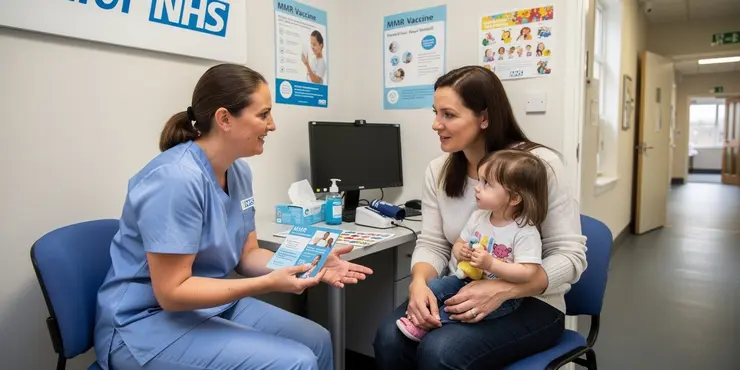
How can measles outbreaks be prevented?
Relevance: 59%
-
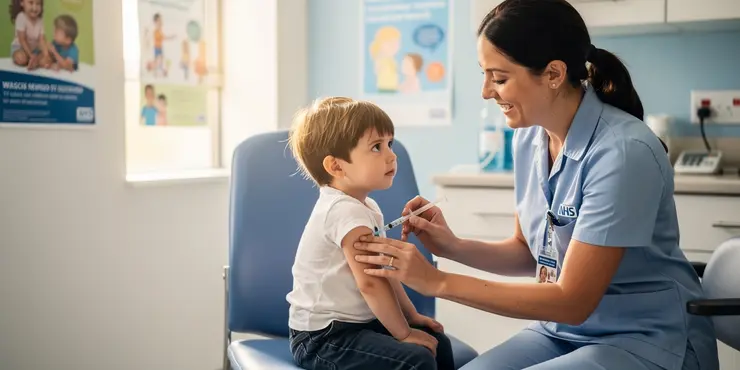
What is the current measles vaccination coverage in the UK?
Relevance: 58%
-
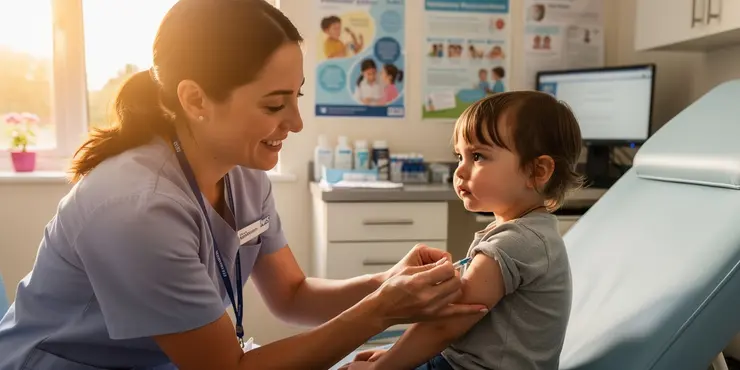
How does vaccination affect measles rates?
Relevance: 58%
-
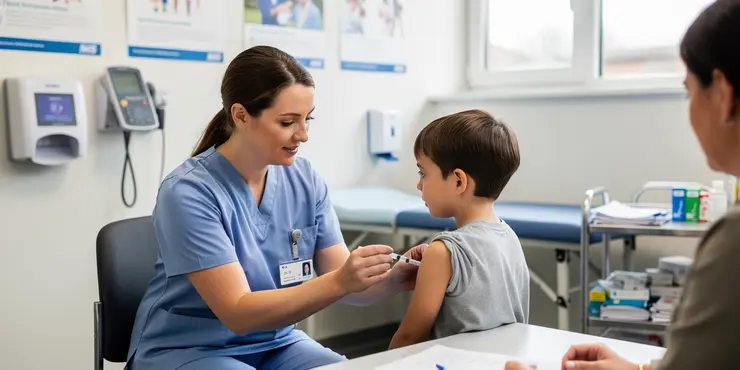
Can you get measles more than once?
Relevance: 58%
-
What should you do if you suspect you have measles?
Relevance: 58%
-
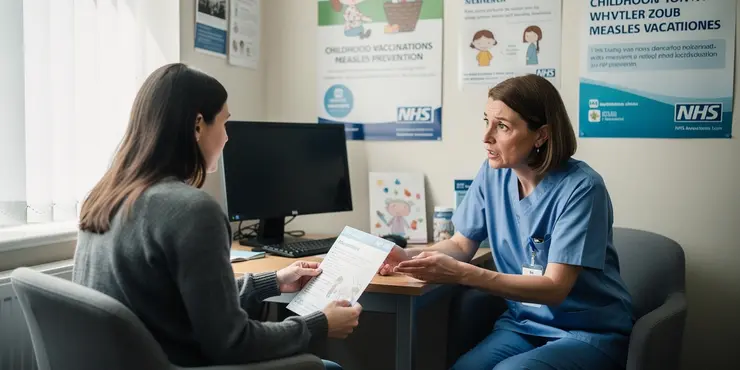
Is there a risk of global spread if measles cases rise in the UK?
Relevance: 58%
-
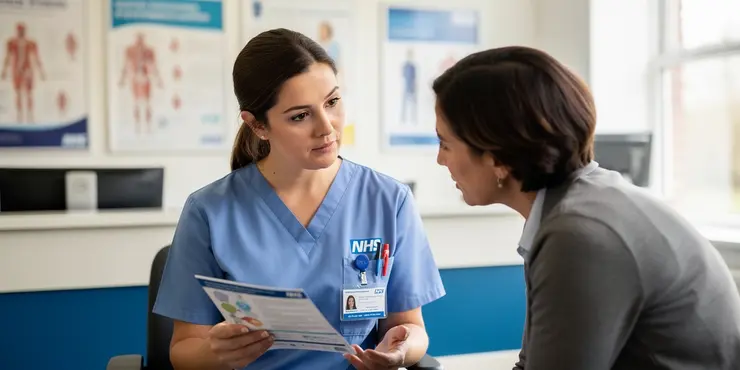
Is it necessary to get a measles vaccine before travelling?
Relevance: 58%
Treatment for Measles: An Overview
Understanding Measles
Measles is a highly contagious viral disease that typically presents with symptoms like fever, cough, runny nose, inflamed eyes, sore throat, and a distinctive red rash. Despite being preventable through vaccination, measles can still pose a risk of outbreaks, especially in areas with low vaccination rates. In the United Kingdom, achieving high immunisation coverage remains crucial in preventing the spread of this disease.
General Management of Measles
There is no specific antiviral treatment for measles, but supportive care is essential. Individuals diagnosed with measles should stay well hydrated and rest adequately. Fever reducers, such as paracetamol or ibuprofen, can be used to alleviate symptoms like fever and muscle aches. Patients should also be monitored for any complications, which can include ear infections, diarrhoea, pneumonia, and encephalitis.
Vitamin A Supplementation
Research has shown that vitamin A supplements can reduce the severity of measles in children. The World Health Organization (WHO) recommends administering vitamin A to children with measles in areas where vitamin A deficiency may be more prevalent. This treatment has been shown to decrease the risk of severe complications, including blindness and death.
Preventive Measures
The most effective way to prevent measles is through vaccination. The MMR (measles, mumps, and rubella) vaccine is offered to children in the UK as part of the NHS childhood vaccination programme and is highly effective at providing long-term protection. Ensuring high vaccination coverage is vital to achieving herd immunity and preventing outbreaks.
Isolation and Public Health Measures
In the case of a measles outbreak, isolation of affected individuals is crucial to prevent further spread. Public health officials may also track and notify people who have been in contact with an infected individual. Those exposed to the virus may be advised to get vaccinated, if appropriate, and to seek medical advice if symptoms develop. These measures help contain outbreaks and protect vulnerable populations.
Treatment for Measles: What You Need to Know
What is Measles?
Measles is a very contagious sickness caused by a virus. It causes symptoms like a high temperature, cough, runny nose, sore eyes, sore throat, and a red rash. You can stop measles by getting a vaccine (a special medicine that protects you). If not enough people get this vaccine, more people can catch measles. In the UK, it is important for everyone to get the vaccine to stop measles from spreading.
How to Take Care of Measles
There is no special medicine to make measles go away, but you can help by giving good care. If you have measles, you should drink lots of water and get plenty of rest. Medicines like paracetamol or ibuprofen can help with fever and sore muscles. It is important to look out for other problems measles can cause, like ear aches, tummy trouble (diarrhoea), lung infection (pneumonia), and brain swelling.
Using Vitamin A
Vitamin A can help make measles less severe in children. The World Health Organization (WHO) suggests giving children with measles vitamin A in places where they might not get enough of it. Vitamin A can help stop serious problems, like going blind or worse.
How to Stop Measles
The best way to stop measles is to get vaccinated. In the UK, the MMR vaccine protects against measles, mumps, and rubella. It is given to children as part of their regular doctor visits. Getting vaccinated is very important to stop measles from spreading to lots of people.
What to Do During a Measles Outbreak
If many people get measles, it is important to keep those who are sick away from others. Health workers might talk to people who were around the sick person to stop the disease from spreading. People around someone with measles might need to get the vaccine and see a doctor if they start to feel sick. These actions help keep everyone safe. Supportive tools you can use include picture aids or charts to understand information better. Consider reading along with someone or using a highlighter to mark key points. It might also help to ask questions or discuss the content with someone else.
Frequently Asked Questions
What is the primary treatment for measles?
There is no specific antiviral treatment for measles. Care is supportive, focusing on relieving symptoms and addressing any complications.
Can measles be prevented with a vaccine?
Yes, measles can be effectively prevented with the MMR vaccine, which protects against measles, mumps, and rubella.
What should be done if someone is suspected of having measles?
If measles is suspected, contact a healthcare professional immediately. Avoid exposing others, especially those who are unvaccinated or immunocompromised.
Are antibiotics used in the treatment of measles?
Antibiotics are not effective against measles, but they may be prescribed if there is a secondary bacterial infection, such as pneumonia or a middle ear infection.
How can symptoms of measles be managed?
Symptoms can be managed with rest, fluids, and medications like paracetamol or ibuprofen to reduce fever and relieve pain.
Are vitamin supplements recommended for measles?
Vitamin A supplements are sometimes recommended to help reduce the severity of measles, especially in children.
What is the recovery time for measles?
Most people recover from measles within 7 to 10 days, although it can take longer if complications develop.
Who is most at risk of severe complications from measles?
Those most at risk include unvaccinated young children, pregnant women, and individuals with weakened immune systems.
How does the MMR vaccine help prevent measles?
The MMR vaccine stimulates the immune system to produce antibodies against measles, providing immunity and preventing infection.
Is there any way to treat measles-related complications?
Complications like ear infections or pneumonia may require medical treatment, including antibiotics for bacterial infections.
What supportive care is recommended for someone with measles?
Supportive care includes ensuring adequate hydration and nutrition, maintaining comfort, and monitoring for any complications.
Can measles be treated at home?
Mild cases of measles can be managed at home with supportive care, but medical advice should always be sought.
How effective is the MMR vaccine in preventing measles?
The MMR vaccine is over 97% effective in preventing measles after two doses.
Can older children and adults receive the MMR vaccine?
Yes, older children and adults who have not been vaccinated or have not had measles should receive the MMR vaccine.
When should one seek medical attention for measles?
Seek medical attention if the measles symptoms are severe, if there are signs of complications, or if there is any difficulty in breathing.
How do doctors help people with measles?
Doctors help people with measles by giving them plenty of rest and fluids. They make sure the person drinks lots of water and gets enough sleep. Sometimes doctors might give medicine to help with a fever or sore throat.
Here are some helpful things to do:
- Drink lots of water.
- Rest in bed.
- If you feel bad, talk to an adult or a doctor.
There is no special medicine to cure measles. To get better, you need to rest and help your body feel comfortable. This can mean taking medicine for a fever or drinking lots of water. It's also important to see a doctor if you feel very sick.
Can you stop measles with a shot?
Yes, you can stop measles with a shot called a vaccine. The vaccine helps your body fight the measles virus.
If you get the vaccine, you are less likely to get measles and feel sick.
It is good to get your shots to stay healthy.
You can ask your doctor or a nurse to help you with the vaccine.
Use pictures or videos to understand better how vaccines work.
Yes, you can stop measles with a special shot called the MMR vaccine. This shot keeps you safe from measles, mumps, and rubella.
What to Do If You Think Someone Has Measles
If you think someone has measles, talk to a doctor or nurse right away. Stay away from other people, especially if they haven't had their shots or if they have a weak immune system.
Do doctors use antibiotics to treat measles?
Antibiotics do not work on measles. But doctors might give them if there is another problem caused by bacteria, like pneumonia or an ear infection.
How can you take care of measles symptoms?
Measles can make you feel sick. Here are some ways to feel better:
- Rest: Sleep and relax. Your body needs energy to get better.
- Drink fluids: Drink water, juice, or soup to stay hydrated.
- Lower fever: Use medicine like paracetamol (ask an adult) to help with fever.
- Itchy skin: Try a cool bath or ask an adult about soothing creams.
If you have questions or feel very sick, ask an adult to call a doctor.
To feel better, you can do these things:
- Rest a lot.
- Drink lots of water.
- Take medicine like paracetamol or ibuprofen. This helps to lower a fever and makes pain go away.
If you find it hard to read, you can ask someone to read it to you. You can also use apps that read text out loud.
Should you take vitamin pills if you have measles?
Sometimes, doctors say that taking Vitamin A can help make measles less bad, especially for kids.
How long does it take to get better from measles?
It takes about 2 weeks to get better from measles. Make sure to rest a lot, drink water, and take medicine if the doctor gives it. Having someone to help you at home can be good too.
Most people get better from measles in 7 to 10 days. But it might take longer if there are problems.
Who can get very sick from measles?
Some people are more at risk. This includes young children who haven't had their vaccines, pregnant women, and people who have weak immune systems.
How does the MMR shot stop measles?
The MMR shot is a medicine that helps keep you safe from three illnesses: measles, mumps, and rubella. It tells your body how to fight these illnesses.
How does it work?
When you get the MMR shot, it teaches your body to be ready. So if measles tries to make you sick, your body knows how to stop it.
Why is it important?
Getting the MMR shot can keep you and others around you safe from getting sick.
Helpful tip:
Ask a grown-up you trust to help you with getting vaccine information. They can talk with a doctor or nurse for you.
The MMR vaccine helps your body get ready to fight measles. It teaches your body how to stop you from getting sick.
Can you help with problems from measles?
Yes, some ways can help with problems from measles. Here are some tips:
- See a doctor: The doctor can give medicine to help with the illness.
- Rest and drink fluids: Resting and drinking lots of water help you feel better.
- Ask for help: It is okay to ask family or friends to help you during this time.
Tools like picture charts or reminder apps can help you remember these steps.
If you get sick with something like an ear infection or pneumonia, you might need medicine from a doctor. Sometimes, you need antibiotics to fight germs that make you sick.
How can you help someone with measles?
If someone has measles, here’s how you can take care of them:
- Give them lots of water to drink.
- Make sure they rest and sleep.
- Keep the room quiet and not too bright, to help with headaches.
- Give them food that is easy to eat, like soup.
- Check their fever, and tell a grown-up if it gets too high.
- Use soft tissues if they have a runny nose.
If you have questions, ask a doctor or nurse for more help.
Supportive care means taking good care of someone who is sick. This includes helping them drink enough water, eat healthy food, feel comfortable, and watching for any problems.
Can you care for measles at home?
Yes, you can help take care of someone with measles at home. Here are some ideas:
- Make sure they rest a lot.
- Give them plenty of water to drink.
- Keep the room dim if bright light hurts their eyes.
- You can give medicine for fever. Ask a doctor what is safe.
- Watch for any serious signs, like trouble breathing. If these happen, get medical help.
Talking to a doctor is always a good idea. They can give you advice and help if you need it.
If someone has a mild case of measles, they can be looked after at home. It's important to see a doctor for advice.
Does the MMR shot stop measles?
The MMR shot works really well. It stops measles in more than 97 out of every 100 people who get two shots.
Can older kids and adults get the MMR shot?
Yes, older kids and grown-ups can get the MMR shot. It's okay to have it at any age.
If you have questions or need help, ask a doctor or nurse. They can give you advice.
Yes, older kids and grown-ups who have not had their shots or have not had measles should get the MMR shot.
When should you see a doctor for measles?
If you think you have measles, go to the doctor. Measles can make you very sick.
Here are times you must see a doctor:
- If you have a high fever.
- If you have a rash all over your body.
- If you have a bad cough or runny nose.
- If your eyes are red and hurt.
- If you feel very tired and weak.
It is always good to have someone help you go to the doctor if you feel very sick.
If you feel very sick with measles, or if you have trouble breathing, go to the doctor. If something feels wrong, get help from a doctor or nurse.
Useful Links
This website offers general information and is not a substitute for professional advice.
Always seek guidance from qualified professionals.
If you have any medical concerns or need urgent help, contact a healthcare professional or emergency services immediately.
Some of this content was generated with AI assistance. We’ve done our best to keep it accurate, helpful, and human-friendly.
- Ergsy carfully checks the information in the videos we provide here.
- Videos shown by Youtube after a video has completed, have NOT been reviewed by ERGSY.
- To view, click the arrow in centre of video.
- Most of the videos you find here will have subtitles and/or closed captions available.
- You may need to turn these on, and choose your preferred language.
- Go to the video you'd like to watch.
- If closed captions (CC) are available, settings will be visible on the bottom right of the video player.
- To turn on Captions, click settings .
- To turn off Captions, click settings again.
More Items From Ergsy search
-
Is there a treatment for measles?
Relevance: 100%
-

Is there a treatment for measles?
Relevance: 100%
-

Measles
Relevance: 74%
-

What is measles?
Relevance: 74%
-

Can measles be treated?
Relevance: 72%
-

Can adults get measles?
Relevance: 68%
-

How is measles transmitted?
Relevance: 68%
-

Can measles be serious?
Relevance: 68%
-

Are measles outbreaks common in the UK?
Relevance: 68%
-

What are the symptoms of measles?
Relevance: 67%
-

How long is a person with measles contagious?
Relevance: 65%
-

Are measles more common outside of the UK?
Relevance: 65%
-

Are measles cases rising in the UK?
Relevance: 65%
-

How contagious is measles?
Relevance: 65%
-

How is measles transmitted?
Relevance: 65%
-

How is measles spread?
Relevance: 64%
-

What are the symptoms of measles?
Relevance: 64%
-

Is Rubella the same as measles?
Relevance: 64%
-

What are the symptoms of measles?
Relevance: 64%
-

Why is measles less common in the UK?
Relevance: 64%
-

Can measles cause complications?
Relevance: 63%
-

How does the UK monitor measles outbreaks?
Relevance: 62%
-

Are adults in the UK at risk from measles?
Relevance: 62%
-

How can measles be prevented?
Relevance: 61%
-

Are measles cases currently rising in the UK?
Relevance: 61%
-

What should I do if I suspect I have measles?
Relevance: 61%
-

What is causing the rise in measles cases in the UK?
Relevance: 61%
-

What complications can arise from measles?
Relevance: 61%
-

What should you do during a measles outbreak?
Relevance: 60%
-

Can the measles vaccine be given to adults?
Relevance: 60%
-

Who is most at risk from measles?
Relevance: 60%
-

Which countries have higher rates of measles?
Relevance: 60%
-

Why are measles outbreaks still occurring?
Relevance: 60%
-

How can measles outbreaks be prevented?
Relevance: 59%
-

What is the current measles vaccination coverage in the UK?
Relevance: 58%
-

How does vaccination affect measles rates?
Relevance: 58%
-

Can you get measles more than once?
Relevance: 58%
-
What should you do if you suspect you have measles?
Relevance: 58%
-

Is there a risk of global spread if measles cases rise in the UK?
Relevance: 58%
-

Is it necessary to get a measles vaccine before travelling?
Relevance: 58%


